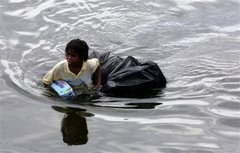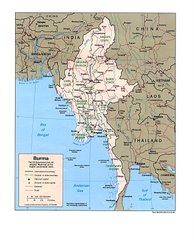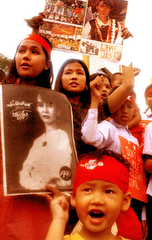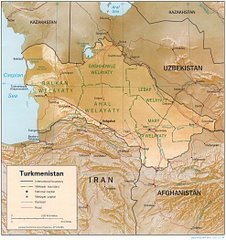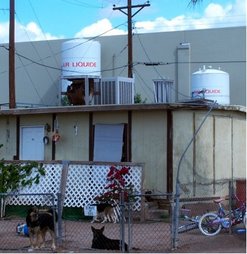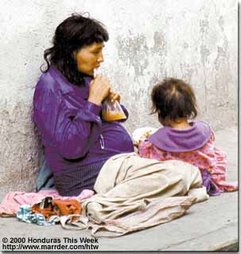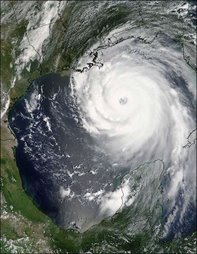Monday, February 19, 2007
Our Seventh Concern: Tibetan Refugee Crisis
Be sure to read about Our Seventh Concern. Then post your comments and invite your friends to check it out as well!
---
The Tibetan refugee crisis has been an on-going human rights concern for many years, and recent reports of killing and torture by Chinese border control troops have been particularly disturbing. Between 2,500 and 3,000 Tibetans make the dangerous crossing by foot over the Himalayas into exile in Nepal and India each year, fleeing religious and political repression, as well as discriminatory educational and economic policies by the Chinese government. One-third of these refugees are children.
Last fall, Chinese troops opened fire at a group of Tibetan refugees, killing a 17-year-old nun. Other refugees, including children, were detained by these soldiers, and many were tortured while in detention.
Learn More:
1. International Campaign for Tibet
- an international organization that has been working on remedying human rights abuses in Tibet for the past 19 years. ICT’s 2001 report “Dangerous Crossing: Conditions Impacting the Flight of Tibetan Refugees” provides an in-depth and informative analysis of the refugee situation.
2. YouTube video showing Chinese soldiers attacking Tibetan refugees (warning: graphic images)
Take Action:
1. Students for a Free Tibet- Activist Center
- provides students with an “Activist Toolbox” which explains how to organize around this issue within your school
2. Race for Tibet Campaign- Beijing Olympics 2008
- sign a petition urging China to improve its human rights conditions and demanding integrity from China and the International Olympic Committee (IOC) before next year’s Olympics
- also, receive free advocacy tools (including ‘Race for Tibet’ stickers and post-cards) to help raise awareness in your community
3. Amnesty International Online Action Center
- sign and send a letter to various Chinese and Tibetan government actors condemning the shooting and torture of Tibetan refugees
Saturday, February 17, 2007
Mid-Week Update: Gender-Based Violence
---
In
To learn more about this issue and to read first hand accounts from victims, click Here
...Or visit this site to read a poignant story about a Congolese woman who survived sexual assault and is now rebuilding her life with help from the IRC (International Rescue Committee)
To find out how to help, visit:
-and make sure to sign the petition to support the GROWTH (Global Resources and Opportunities for Women to Thrive) Act, which would provide economic opportunities to women living in poverty
You can also donate to:
The International Rescue Committee (IRC), a global leader in providing emergency relief, rehabilitation, and protection for people affected by violent conflict and oppression.
Thanks for reading Abby's posts, and thanks for sharing Our Concern about Gender-Based Violence. Post your comments today and be sure to look out for our next guest blog soon!
Wednesday, February 14, 2007
Important Update on Cluster Bombs
You may recall that cluster bombs, of which the U.S. has about 5.5 million in its arsenal, have killed millions of civilians in Iraq, Afghanistan, Lebanon and elsewhere. New legislation sponsored by U.S. Senators Dianne Feinstein (D-CA) and Patrick Leahy (D-VT) would ban federal funding for the deployment of such bombs in or near civilian areas. Human rights groups are hailing this bill, and so I'm asking you to do the following:
Learn More... by reading this article and this Press Release by co-sponsor Sen. Feinstein.
Take Action... by urging both of your two U.S. Senators to co-sponsor this legislation. All it takes is a phone call and a few words, i.e. "Hi, I'm a constituent and I'd like to urge Senator X to co-sponsor legislation by Senators Feinstein and Leahy that will end federal funding for dangerous cluster bombs. Will you pass on my message to the Senator?"
A single phone call literally does matter. Find your Senator's phone number Here, and then make the call!
Thanks everyone.
Sunday, February 11, 2007
Our Sixth Concern: Gender-Based Violence
Abby address Our Sixth Concern, the very important issue of Gender-Based Violence. Be sure to read through her post, post your own thoughts and then look out for a mid-week update:
---
Gender-based violence (GBV) is a global epidemic that affects the well being of women and girls from every culture, country, and class. Violence against women has been called "the most pervasive yet least recognized human rights abuse in the world." Studies have shown that at least one in three women have been beaten or sexually abused in their lifetime.
GBV can take many forms, including rape, harassment, domestic violence, and genital mutilation. It is undoubtedly linked to gender-based inequalities that permeate the attitudes and beliefs of many cultures. Because of the stigma surrounding this issue, women are often reluctant or afraid to share their suffering. It is time to give these women a voice. Our Sixth Concern addresses the morally reprehensible, yet widely ignored, public health threat: Gender-Based Violence.
To learn more:
1. Visit:
- UNFPA (United Nations Population Fund)
http://www.unfpa.org/gender/violence.htm
-an international organization dedicated to ensuring basic human rights for every woman, man, and child. UNFPA works with men and boys to change the paradigm of male-dominance that perpetuates violence against women.
- Women Watch
-an inter-agency website created to provide information and resources about gender equality and the empowerment of women throughout the United Nations.
2.
- The World Health Organization (WHO) to read a groundbreaking study that investigated the extensiveness of gender-based violence in 10 countries
http://www.who.int/gender/violence/who_multicountry_study/summary_report/summary_report_English2.pdf
- International Violence Against Women Act (I-VAWA)
- slated for introduction in Congress in 2007, this act proposes ways in which U.S. international assistance programs can help support women all over the world who are working to eliminate violence in their communities.
http://www.womensedge.org/index.php?option=com_content&task=view&id=283&Itemid=99999999
Update: Children and War
Here's some ways to serve Iraqi children:
1. Operation Iraqi Children (OIC): Co-founded by actor Gary Sinise, Operation Iraqi Children donates primarily school supplies to children in Iraq, Afghanistan, and elsewhere. You can organize a School Supply Drive or simply Donate Funds today.
2. UNICEF: This well-known non-profit deals with the issue of orphaned and homeless children in Baghdad through reintegration, medical care, and disease prevention. For more information or to make a donation, click Here.
For more organizations that serve Iraqi children, read this blog and then click on the links that follow it.
Finally, thanks to a great suggestion by a reader, you may want to read the book War Is A Force That Gives Us Meaning by noted New York Times columnist Chris Hedges. Click Here for more.
Wednesday, February 7, 2007
Our Fifth Concern: The Human Costs of War
While these numbers are stagerring, there was a time that supporting the troops meant supporting the President or supporting the war. No longer. Now than more ever, combat veterans of the Wars in Iraq and Afghanistan need our moral sensibilities as well as our political and philosophical ones.
Which is why Our Fifth Concern addresses the Human Costs of War.
Here's how you can help the troops at home and abroad:
1. Fisher House: Perhaps the largest organization of its kind, Fisher House provides specially-designed homes for injured veterans. The organization now operates 34 homes nationwide, each equipped with 8-21 suites that can accomodate 16-42 family members. The temporary homes also have plenty of living space and are located in close proximity to hospitals and care centers. For ways to help, click Here.
2. Homes For Our Troops: A similar organization, Homes For Our Troops provides permanent individual family homes for injured veterans. The homes are free for the veterans and are financed fully by private contributions. To read personal stories about affected veterans, click Here. To support activity in your state, click Here. To get involved and make donations, click Here and Here.
3. Any Soldier: You can send care packages to Any Soldier in Iraq through this organization. Click Here to learn how and what to send.
4. Books for Soldiers: Register on the Books for Soldiers website and send books, DVDs, and other items to entertain the troops. Seems easy enough.
Post a comment now to share other ways that we can support the vets. Come back later in the week for more suggestions and opportunities to serve Iraqis affected by the conflict as well.
Thursday, February 1, 2007
UPDATE: Rescuing Animals From Disasters
On the Ground: Reacting to Emergencies...
1. World Society for the Protection of Animals (WSPA) has participated in animal rescue efforts everywhere from flooded Central Europe to earthquake-shattered India. Learn more about their international work here, and about a specific experience in Pakistan here. Some of you may also be familiar with their local work in Massachusetts and beyond.
Ways to Participate in Animal Rescue...
1. Friends of Animals offers a state-by-state breakdown of the disaster plan development in each state. Click on your state to learn more.
2. The American Humane Association describes how you can become an Animal Emergency Services Volunteer. There is training involved, but it might be something to consider in the future or just to peruse.
I know Our Fourth Concern was one with which only a few of us were familiar, so thanks for taking the time to learn more. Continue to post your comments on this Concern and to help us develop future ones as well.
And look out next week for our first Guest Blogger!

